Italy
Study in Italy
Why study in Italy? Education in Italy is highly esteemed, with a wide range of excellent academic institutions throughout Italy welcoming students to study almost any subject imaginable. Italy has played an important academic role as one of the catalysts in reforming Europe's higher education. Students in Italy gain valuable knowledge not only within the classroom but also through everyday life in this dynamic, incredible place. How is the education system in Italy? First Cycle: Bachelors degrees in Italy (3 years) and single-cycle degrees (5–6 years) Second Cycle: Masters degrees in Italy (2 years) and 1st Level vocational masters What are the international tuition fees in Italy? The tuition fees range from 2000 euros to 4000 euros, since this varies from one university to another and also depends on the chosen course of study. How are the part-time and full-time job opportunities in Italy? Compared to other European countries like France, Germany, etc. Its LESS! You require the Italian language and exceptional command in English. Part-time jobs are rare. What about post-study work visas after graduation? If you manage to secure a job before or after graduation, you have the opportunity to convert your visa from student to work. What are the documents required for visa processing? Documents required: Passport size photos Admission Letter (most important)** Insurance Travel Tickets (one way) Pre-Enrollment Procedure Declaration of Value Accomodation Proof#
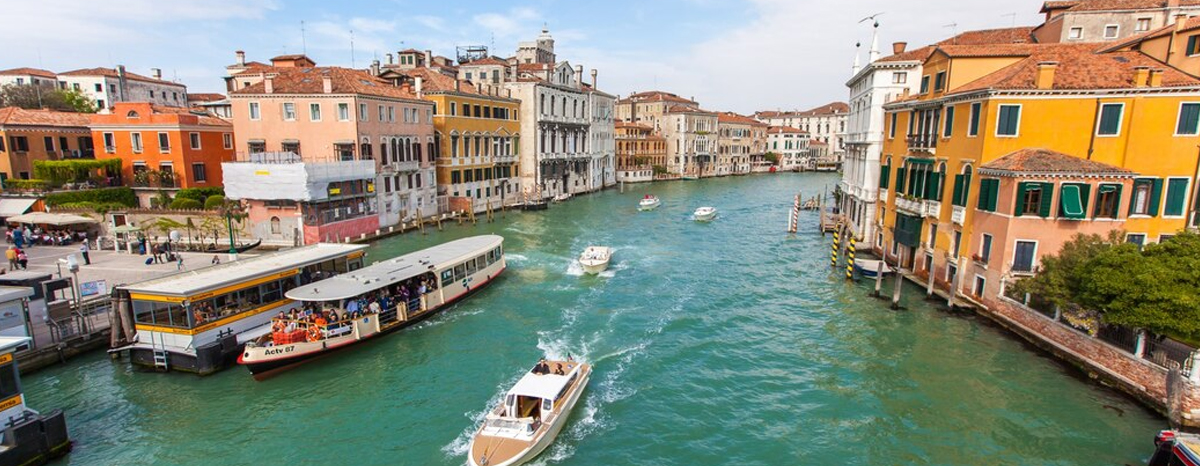
Top Universities in Italy
-
University of Pisa
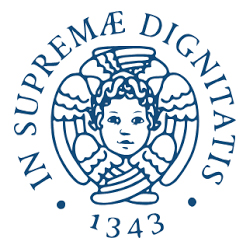
The University of Pisa is one of the most renowed educational institutions in Italy boasting 20 departments, with high level research centres in the sectors of agriculture, physics, computer science, engineering, medicine and veterinary medicine.
-
University of Bologna
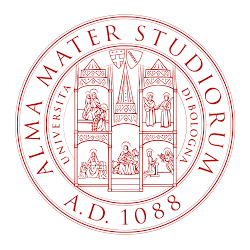
The University of Bologna is a public research university in Bologna, Italy. Founded in 1088 by an organised guild of students, it is the oldest university in continuous operation in the world, and the first degree-awarding institution of higher learning. At its foundation, the word universitas was first coined.
-
University of Padova
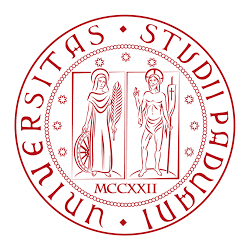
The University of Padua is an Italian public research university in Padua, Italy. It was founded in 1222 by a group of students and teachers from the University of Bologna, who previously settled in Vicenza, thus, it is the second-oldest university in Italy, as well as the world’s fifth-oldest surviving university.
-
Politechnico De Milano
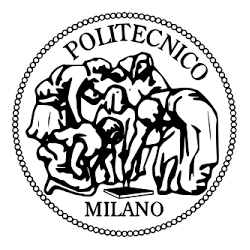
Politecnico di Milano is a public scientific-technological university which trains engineers, architects and industrial designers. The University has always focused on the quality and innovation of its teaching and research, developing a fruitful relationship with business and productive world by means of experimental research and technological transfer..
Research has always been linked to didactics and it is a priority commitment which has allowed Politecnico Milano to achieve high quality results at an international level as to join the university to the business world. Research constitutes a parallel path to that formed by cooperation and alliances with the industrial system.
-
University of Pavia
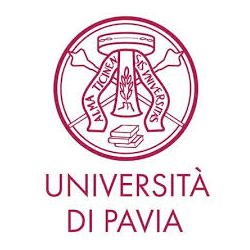
The university of Pavia is one of the oldest universities in the world founded in 1361 and offering degree courses in all fields of studies Students are welcomed into the friendly and dynamic atmosphere of the city campus full of culture, enriching their life.
The university is an active promoter of research in collaboration with the world’s most prestigious academic institutions.
The international department of the University of Pavia is strengthening the international vocation of our academic institution by implementing Degree Courses in Englihs and several projects spread around the world. Since 2020 Pavia is one of the seven historical universities founding european alliance ” Ec2u European campus of city universities” : this multicultural and multilinguistic consortium works hard to transmit sustainable development values and brings them into the daily life of academics and citizens.
-
University of Trento
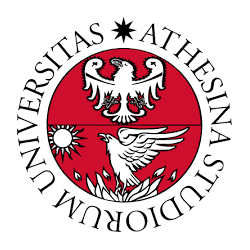
The University of Trento was founded in 1962 and has always aimed at building alliance and reciprocal efficiency with Italian and foreign institutions and organizations. In 1982, the University (until then private) became public, with a statute that guaranteed self-government.
The Milan Agreement, signed in 2009 between the Government and the Autonomous Province of Trento (together with that of Bolzano and the Regional Authority), regarding the change to the special Statute of autonomy on financial regulations, gave the Province new authority over the University. This is a further step forward in the development of the University and guarantees that the financial resources will be allocated and sufficient.
-
University of Milan
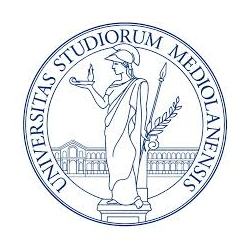
The University of Milan, officially abbreviated as UNIMI, or colloquially referred to as La Statale, is a public research university in Milan, Italy. It is one of the largest universities in Europe, with about 60,000 students, and a permanent teaching and research staff of about 2,000.
-
Alma Mater Studiorum - Università di Bologna
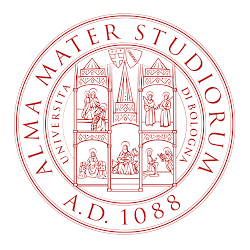 The University of Bologna is a public research university in Bologna, Italy. Founded in 1088 by an organised guild of students, it is the oldest university in continuous operation in the world, and the first degree-awarding institution of higher learning. At its foundation, the word universitas was first coined.
The University of Bologna is a public research university in Bologna, Italy. Founded in 1088 by an organised guild of students, it is the oldest university in continuous operation in the world, and the first degree-awarding institution of higher learning. At its foundation, the word universitas was first coined. -
Sapienza University of Rome
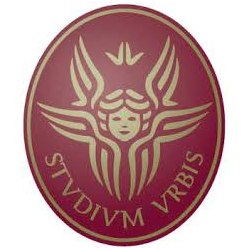
The Sapienza University of Rome, formally the Università degli Studi di Roma “La Sapienza”, abbreviated simply as Sapienza, is a public research university located in Rome, Italy.
Country Facts
Italian culture is deeply rooted in ancient civilizations which flourished on the peninsula for over a millennium and left their imprint all over the country in arts, legal system and traditions. Thanks to its traditions and innovations, Italy became the cradle of visual arts, music, poetry, literature and played and continues to play an influential role in Europe’s culture and society as a whole.
Today, Italy ranks among the 8 most industrialized countries in the world. Alongside big companies, state-owned and private, it has developed a sound network of small and medium-sized enterprises, promoted scientific parks, and fostered basic and applied research in a wide variety of fields such as biology, ICT, medicine, physics and space science.
The 20 Nobel Prize laureates since 1906 prove the world recognition of the achievements of Italian scientists, physicians, chemists, literature men and economists who excelled in different spheres, including medicine, chemistry, literature and economics.
Italian hospitality, lifestyle and the high quality of education have made Italy a great place for living and studying.
Visa, Languages, Work
Visa requirements for Italy
Those who apply for a Schengen visa will need to gather the required documents,complete a visa application form and submit these to the Italian consulate or embassy in their home country. Processing time can vary,so expats should submit their applications well before their departure date.Various documents are required to apply for a Schengen visa,including a valid passport,passport photos,return tickets,proof of funds,accommodation and, where applicable, onward travel.
Expats applying for a Schengen visa to travel to Italy for business will need to include a letter of invitation from the Italian business party and a letter from their local employer stating your duties in Italy.If attending a conference, proof of registration and accommodation is required as well. Different visas will have their own requirements and expats should make themselves aware of these. In some cases, applicants may also be asked to provide additional documents,
at the discretion of the Italian embassy or consulate.
It is common for an applicant to be asked for proof of employment and proof of residence in their home country, as an indicator that they will return home after their trip.Once granted the Schengen visa,it is still best for expats to bring their supporting documents with them; in some cases the border guards may request these.
Visas for Italy
The requirements expats will have to meet to get a visa for Italy will vary depending on their country of origin and their reason for visiting Italy.
Citizens of the European Union (EU),the European Free Trade Association (EFTA), and those from a designated list of countries drawn up by the Italian government are afforded visa-free entry into Italy, and the right to a 90-day stay.All EU and EFTA citizens would need is a passport valid for three months after their departure date;no additional visit(tourist) visa or business visa is required.This list includes Canada,New Zealand,Australia and the USA,but does not include India or South Africa,among others.
Citizens of the European Union (EU) also do not need a work permit to legally work in Italy.All they would need to do is apply for a residence card in order to navigate bureaucratic channels and tap into certain parts of local life -like opening a bank account.
Higher Education System
Education System
Study in Italy is a valuable information tool for students wishing to attend higher education (H.Ed.) programmes in Italy, both at undergraduate and postgraduate level. This national website provides the following information: types of H.Ed. Institutions (university and non-university sector), admission procedures, study programmes, university degrees, non-university H.Ed. Qualifications (academic diplomas), tuition language, student life and welfare services, country information, etc.
Links to other websites are also given, where even more detailed information on specific topics of individual interest is available. The website “Study in Italy” is a MIUR project, jointly carried out by the CIMEA of the Fondazione Rui and CINECA.
Why Italy?
Italy has played an important role in European higher education: it is one of the four countries that first engaged to create the so-called “European Area of Higher Education” (Sorbonne Declaration, May 1998), thus starting that type of higher education reform which, known as “Bologna Process” (Bologna Declaration, June 1999) is being implemented all over Europe. Today Italy ranks among the 8 most industrialised countries in the world. Alongside some big companies, both state-owned and private, it has developed a sound network of small and medium-sized undertakings, promoted a few scientific parks, and is incentivating basic and applied research in a great variety of fields (biology, ICT, medicine, physics, etc.).
The Italian Higher Education System
Italian higher education is structured in a binary system, consisting of two main articulations:
- The university sector
- The non-university sector.
At present, the university sector is made up of 89 university institutions which are classified in:
- 58 State universities
- 17 non-State universities (legally recognised by the State)
- 2 universities for foreigners
- 6 higher schools specialised in postgraduate university studies
- 6 telematic universities.
The non-university sector includes 4 education typologies with their institutions:
- Higher schools of design: polytechnics for the arts, academies of fine arts, higher institutes for applied arts, music conservatories and recognised music institutes, higher institutes for musical and choreographic studies, national academies
- Higher education in language mediation: higher schools for language mediators
- Higher integrated education (FIS): programmes of higher technical education & training (IFTS)
- A few specific fields (e.g. archiving, diplomatics, restoration, military studies, etc.) which, along with their respective institutions, fall under the supervision of ministries other than that of Education.
Practical information
Academic Calendar
The academic year in Italy is made up of two semesters. The first semester starts in September/October and ends in January/February. The second semester starts in February and ends in July. The actual start and finish dates will vary in the different universities but each semester lasts around 20 weeks and is made up of a teaching period lasting around 14 weeks and an exam period lasting around 6 weeks.
Teaching and learning
Most teaching still takes place in large lecture halls but this will depend very much on the single course of study. Students are also expected to carry out a considerable amount of self study outside the classroom in order to prepare for exams.
Assessment
Exams are held after the teaching period and are mainly oral exams although some courses will have written tests taking place during the semester or before the oral exam. Each exam will have a number of dates offered during the exam period and students can choose which date they wish to take the exam. They are also entitled to turn down a mark and take the exam again if they are not satisfied with the result. Rules apply as to how often a student can take an exam within an examination period.
Grading systems
Examinations are graded according to a scale ranging from 0 to 30, with 18 as a pass mark.
A cum laude may be added to the highest grade (30; 30 e lode) as a mention of special distinction.
All examination results are used to calculate the overall degree mark on a scale of 0 – 110. The final result is based on exam results plus the presentation of a project or dissertation in front of a Board of Examiners. The pass mark is 66 and students who obtain full marks of 110 may also be awarded summa cum laude (110 e lode).
Test Requirements
Language requirements for studies at universities in Italy
Italian
According to Italian regulations regarding access to university studies, students are required to have an adequate knowledge of the Italian language as it is the usual language of instruction. In general, you need to have a minimum level of Italian corresponding to B2 in the Europass Language Passport classification. If your level of knowledge of Italian corresponds to C1 or C2 in the Europass Language Passport classification, you will be exempted from taking the Italian language test. Unless your level of knowledge of Italian corresponds to C1 or C2 as previously explained, you will be required to pass a test of Italian language. The test will be organized by the institution where you will be studying, usually in September.
English language requirements
If your study program or course is taught in English, you will be required to prove your level of command of English by presenting the results you received at English courses. Please, always check with your university whether your English studies are sufficient for you to meet this requirement. If English is not your first language or if the language of instruction for your first degree is not English, we ask you to provide evidence of your command of English. The most common qualification is the IELTS test. You do not need to have the required marks when you apply, but they would form a condition of any offer that you received, and would have to be achieved before your arrival at LSE. In each case we require the test of English for Academic Purposes. Your test should be no more than two years old by 1 October in the year you intend to start your programme. Other tests may be acceptable if you have already taken them, but conditions attached to offers will be set as required scores in the IELTS . If you are entering the UK on a student visa (tier 4), your language test scores must meet not just LSE’s requirements, but also those of the UK Visas and Immigration (UKVI). Please note that test scores must be achieved from one sitting of the relevant qualification. We will not accept individual component scores from multiple tests. The minimum requirements are listed below. You may need additional language instruction before you register in order to be confident that you can participate fully in your programme. Experience has shown that students who are fully proficient in English are best placed to make the most of all that LSE has to offer, both academically and socially. The LSE Language Centre offers courses in English for Academic Purposes (EAP) to support you both prior to and during your studies.
Minimum grade point requirement
Students may be ranked based on their grade point average from their previous studies. Therefore, always check with the university or college of your choice about the minimum grade point you need to obtain in order to qualify for the study program of your choice.
Accommodation
After committing themselves to moving to a new country, the most difficult decision an expat is likely to make is where to live. House prices in Italy are on par with European countries such as Sweden and Austria but generally cheaper than property in the UK. With a population of more than 60 million and limited space, however, most Italians pay a pretty penny to live in their cities. Italian real estate is still a buyer’s market. The Global Financial Crisis combined with the introduction of the IMU tax on second homes has driven property prices down. To truly benefit though, expats have to buy in small towns and cities.
Types of housing in Italy
Italy is a country of apartment blocks. The post-war population boom is immortalised in the thousands of pastel coloured buildings that crowd every city and town. Simply put, an expat would be hard pressed to find any Italian family living in their own detached home, let alone find one for themselves. Detached homes in Italy are reserved for villas and farms. Most are hundreds of years old and come with a large piece of land and equally large price tag. Often these are heritage-listed or bound by strict laws about what can and can’t be done with them. They are also, usually, in need of some serious renovation. The typical Italian apartment is two bedrooms with one bathroom. The size depends on the city, but one can expect it won’t be sprawling. Height restrictions ensure most apartment blocks are three or four floors high. Conditions are, on the whole, good. Renters have the right to demand anything broken or rundown be fixed and, nine out 10 times, the landlord will foot the bill.
Apartments
Many students choose to find apartments rather than live in the school dorms. Apartments for rent provide a cultural experience that the dorms cannot offer as well as a sense of freedom for the students living outside of his/her country.
Many of finest universities do not offer adequate housing for all of their students. Finding an apartment independent of the universities is often more affordable. Students will need to live with a number of roommates in order to afford an apartment. Universities have many apartment buildings with studios, lofts, one bedroom, two, tree or even four bedroom apartments and houses in the centre of Italy.
Renting property in Italy
It is important to know the local market when looking for a rental property in Italy. An expat could get good, fair rent prices in cities like Perugia or Bologna, but the chances of doing the same in Rome, Milan and Florence are unlikely. If a new arrival doesn’t intend on staying long, they should work out how much they would pay in rent and compare it to price of a similar sized apartment on sale. If someone is going to pay three-quarters or even half of what they would pay to buy the property, they should consider buying.
STUDENT ROOMS
This is a modern building which has 60 accommodation places divided in 46 studios, 1 two-room apartment and 3 three-room apartments. It is located near a big park, sport facilities (swimming-pools, gym, sport fields) and different shops. This residence generally welcomes workers, researchers, PHD students and professors who need accommodation for a long-term stay. It also has guest rooms and studios for disabled people.
Tuition Fees & Living Costs
Tuition fees in public universities are between Euro 400/2000 per year, while private universities are more expensive and the tuition fees are around Euro 10000. About the living costs, considering ac
Scholarship
Tuition Fees are usually very low as most Universities obtain public financial support. All international students are entitled to the same student assistance services as Italian students, including scholarships, dining hall services and housing. However, the total number of foreign students is restricted. Every University has a Tutor Office for inquiries on scholarships and student assistance services. All international students are entitled to the same student assistance services as Italian students, on basis of the same requisites of financial means and/or merit. This applies to scholarships, student loans, housing assistance, refectory meal tickets and fee waivers.
These services are managed by the DSU office (Diritto allo studio universitario).
Alongside scholarship and financial aid information, DSU offices will also provide other services such as counselling and information on extra curricular activities, sport, transport and other practical matters.
The Italian Ministry of Foreign Affairs also offers scholarships for foreign students wishing to pursue their studies in Italy. They are intended for Universities, Academies of Fine Arts, Art Restoration Institutes, Music Conservatories, the National School of Cinematography and Research Centres.
1. Italian Government Scholarship For Foreign Students
2. Edisu Piemonte Scholarships
3. Bologna University Study Grants For International
Students
4. University Of Pavia International Scholarship For
Students From Developing Countries
5. Bocconi Merit And International Awards
6. Polytechnic De Torino International Scholarship
7. Polytechnic De Milano Merit Based Scholarship For
International Students
8. Universita Cattolica International Scholarship
9. University Padova Scholarship For All Degree Courses
10. Scuola Normale Superior Phd Scholarship
Requirements: *minimum Score 70%
Range: €5000 – €13000
Benefits: These Scholarships Covers Tuition Fees As Well As Living Expenses
Interested candidates , please contact us for application deadlines and procedures
History
Italy, meaning the entire peninsula south of the Alps, is known as such from about the 1st century BC. Several centuries earlier, when the name first appears, it is used only of the area in the extreme south – the toe of the peninsula. In the 1st century BC Italy is under the control of a single power, Rome, and it will remain so until the 5th century AD. The peninsula again becomes a political entity, as the modern nation of Italy, in 1861. In all other periods of prehistory and history this most desirable of territories has been shared and fought over by numerous rival groups. Around 700 BC the majority of the tribes in Italy are relatively recent arrivals, either by land from the north or by sea across the Adriatic. They are Indo-Europeans, speaking the subgroup of languages known as Italic. But the dominant group at this time, the Etruscans, are of some different origin. Where they have come from remains a subject of much scholarly debate, but by about 500 BC they control much of central Italy. At this time the southern part of the peninsula, together with Sicily, is dominated by Greek colonies – settled in coastal regions from about 700 BC onwards.
Culture
Italian culture is steeped in the arts, architecture, music and food. Home of the Roman Empire and a major center of the Renaissance, culture on the Italian peninsula has flourished for centuries.Here is a brief overview of Italian customs and traditions.
Art and architecture In Italy
Until the mid-17th century,the Roman Empire and the Roman Catholic Church put Italy on the map as the hub of Western culture.Famous painters,sculptors and architects thrived,especially in Rome.Italy has given rise to a number of architectural styles,including classical Roman, Renaissance, Baroque and Neoclassical.Italy is home to some of the most famous structures in the world,including Colosseum and the Leaning Tower of Pisa. The concept of a basilica—which was originally used to describe an open public court building and evolved to mean a Catholic pilgrimage site — was born in Italy.Florence, Venice and Rome are home to many museums,but art can be viewed in churches and public buildings. Most notable is the ceiling of the Sistine Chapel of the Vatican, painted by Michelangelo sometime between 1508 and 1512.Opera has its roots in Italy and many famous operas —including Aida and La Traviata, both by Giuseppe Verdi,and Pagliacci by Ruggero Leoncavallo — were written in Italian and are still performed in the native language. More recently,Italian tenor Luciano Pavarotti made opera more accessible to the masses as part of the Three Tenors. Italy is home to a number of world-renowned fashion houses, including Armani, Gucci, Benetton, Versace and Prada.
Languages of Italy
The official language of the country is Italian. There are a number of dialects of the language spoken in the country, including Sardinian,Friulian,Neapolitan,Sicilian,Ligurian,Piedmontese, Venetian and Calabrian.Milanese is also spoken in Milan.Other languages spoken by native Italians include Albanian,Bavarian,Catalan,Cimbrian,Corsican,Croatian,French, German,Greek,Slovenian and Walser.
Doing business in Italy
Italians are known for their family-centric culture,and there are a number of small and mid-sized businesses.Even many of the larger companies such as Fiat and Benetton are still primarily controlled by single families.Meetings are typically less formal than in countries such as Germany and Russia, and the familial structure can give way to a bit of chaos and animated exchanges.Italian business people tend to view information from outsiders with a bit of wariness,and prefer verbal exchanges with people that they know well.
Italian holidays
Italians celebrate most Christian holidays, including Christmas and Easter. Pasquetta, on the Monday after Easter, typically involves family picnics to mark the beginning of springtime.
November 1 commemorates Saints Day, a religious holiday during which Italians typically decorate the graves of deceased relatives with flowers. Many Italian towns and villages celebrate the feast day of their patron saint. September 19, for example, is the feast of San Gennaro, the patron saint of Napoli. April 25 is the Liberation Day, marking the 1945 liberation ending World War II in Italy in 1945.
Structure of Studies
1 st Cycle
First-cycle studies leading to the professional title of a Bachelors. Bachelors degree programmes,at least 6 semesters, leading to the professional title of Bachelor or at least 7 semesters.This is the Spanish equivalent of the Bachelor degree.These are focused on preparing students for future employment,or for continued education within Master degree programmes.To obtain this degree,students must earn at least 180 ECTS credits. The duration of this course is 3 to 4 Years.
2 nd Cycle
Second-cycle studies – Called as Masters degree programme (1.5 to 2 years) following the first cycle studies and leading to the professional title of Master. These are focused on theoretical knowledge as well as application and development of creative skills. Masters degree holders may enter a doctoral programme (third-cycle studies). To obtain this degree, students must earn 90-120(Transfer and Acumulation System) ECTS credits.The duration of the course is 1.5 to 2 years.
Long cycle studies
It is also known as the Single long-cycle studies.These study program basically based on an integrated study program, which contains both basic studies and in-depth specialization. The Masters degree programmes which consist 10 to 12 semesters leading to the professional title of magister or an equivalent degree. Its depends on the study course profile. To obtain this degree,students must earn at least 300 ECTS credits (10-semesters studies) or at least 360 ECTS credits (12-semesters studies).
3rd Cycle Studies
3RD Cycle Studies are also called as Doctoral degree programmes.The total duration of these Programmes is 6 to 8 semesters. These Programmes are accessible to graduates of the Masters degree and leading to the PhD degree. These Programmes are offered by the university-type schools as well as some research institutions which belong to the departments of the Spanish Academy of Sciences, along with research and development institutions. The PhD degree is awarded to candidates who submit and successfully defend a doctoral dissertation before the thesis committee, and who pass the doctoral examination.
Post Graduate Degree
Post Graduate Education
Postgraduate Education involves learning and studying for degrees, professional or academic certificates, or other qualifications for which a first or Bachelor degree generally is required, and it is normally considered to be part of Higher Education.The organization and structure of postgraduate Education varies in different countries, as well as in different institutions within countries.This article outlines the basic types of courses and of teaching and examination methods,with some explanation of their history.
Post Graduate Degree
A master degree is an academic degree granted to individuals who have undergone study demonstrating a mastery or high-order overview of a specific field of study or area of professional practice.Within the area studied, graduates are posited to possess advanced knowledge of a specialized body of theoretical and applied topics, high order skills in analysis,critical evaluation or professional application, and the ability to solve complex problems and think rigorously and independently. The degree is awarded upon graduation from a university.
Post Graduate Degree as 2nd Cycle Studies
Second-cycle studies – Called as Masters degree programme (1.5 to 2 years) following the first cycle studies and leading to the professional title of Master.These are focused on theoretical knowledge as well as application and development of creative skills.Master degree holders may enter a doctoral programme (third-cycle studies).To obtain this degree,students must earn 90-120(Transfer and Accumulation System ) ECTS credits. The duration of the course is 1.5 to 2 years.
Post-graduate Specialised Degree Courses
Courses aimed at providing students with advanced qualified training leading to a high qualified professional activity in specific fields. These Courses last at least two years after the first Degree course. In order to enter a Specialization Course students have to obtain a University Degree or another valid and qualified Degree obtained abroad.
Specialization Courses
Courses aimed at providing students with knowledge and abilities required by particular professional activities. They can be instituted only by applying specific Laws or Directives of the European Union. In order to enter a Specialization Course students have to obtain a University Degree or another valid and qualified Degree obtained abroad. To get a Specialization Degree it is necessary to obtain from 300 up to 600 credits included those already acquired by the student within the specialization course.
Under Graduate Degree
What is Meant by Undergraduate Degree
An Undergraduate degree is a colloquial term for an academic degree taken by a person who has completed undergraduate courses. It is usually offered at an institution of higher education,such as a university. The most common type of this degree is the bachelor degree, which typically takes at least three or four years to complete.A bachelor degree is usually earned for an undergraduate course of study that nominally requires three to five years of study .In some cases,it may also be the name of a second graduate degree, such as a Bachelor of Laws (LL.B.),Bachelor of Education (B.Ed.), Bachelor of Civil Law, the Bachelor of Music, the Bachelor of Philosophy, or the Bachelor of Sacred Theology, degree which in some countries are only offered after a first graduate/bachelors degree.
Undergraduate Education
Undergraduate Education is the post-secondary education previous to the postgraduate education. It includes all the academic programs up to the level of a bachelor degree. For example, in the United States an entry level university student is known as an undergraduate, while students of higher degrees are known as graduates. In some other educational systems and subjects,undergraduate education is post-secondary education up to the level of a masters degree; this is the case for some science courses in Britain and some medicine courses in Europe.
Undergraduate or 1st Cycle Studies
First-cycle studies leading to the professional title of a Bachelors. Bachelors degree programmes,at least 6 semesters, leading to the professional title of Bachelor or at least 7 semesters.This is the Polish equivalent of the Bachelor degree. These are focused on preparing students for future employment,or for continued education within Masters degree programmes. To obtain this degree,students must earn at least 180 ECTS credits.The duration of this course is 3 to 4 Years.
3rd Bachelor Degrees in Italy
The bachelor degrees offered in Italy depend on the students qualification as well as career and institution preference.In science and particularly in Engineering,the major programs which include electrical, mechanical and civil are offered with additional majoring courses such as industrial design among others.Medical courses are also available with majors in fields such as surgery and dental medicine. Bachelor degrees in the arts range from marketing,design,tourism,linguistics and many other business courses.
Bachelor degree structure in Italy
Each academic year for bachelor degrees in Italy has two semesters with the first starting in September and ending in February.The second Semester runs from February to July.The duration of study depends on the courses with medicine taking at least six years and law five years.Nevertheless, the ordinary duration of a bachelor degree in Italy is three or four years with the exception of the courses mentioned above. In addition to these,exchange programs as well as credit transfers are availed to the students. Qualifications for the various bachelor degrees in Italy vary depending on the cluster subjects necessary for pursuing the particular courses.
Assessment
Students undertaking bachelor degrees in Italy are evaluated on the basis of the ECT system. According to this system, the offered programs are worth between 180 and 240 credits or ECTs.Exams are held after each teaching period and are usually oral exams though there are some courses with written tests. The grading system for these bachelor degrees is based on a scale that ranges from 0-30, with 18 as the pass mark.
How to Apply
STEP 1Find a Program
The first step in the application process is finding a program thats right for you. Whether you are focused on a particular location, a specific discipline, a combination of both, or are open to exploring all opportunities available to you, Program Finder can help you find a great fit.
STEP 2Start Your Application
You have found your program… now it is time to apply.Our Student Services team looks at a number of factors during the admissions process, including your GPA, major, program choice, and home college or university. Once you apply online, you will be introduced to next steps via Arcadia Passport, an online portal for completing and tracking the rest of your application requirements. Commonly required materials include a transcript and a copy of your up-to-date passport – but each program has specific requirements. Once accepted, our Student Services team will assist you in completing any remaining steps, and continue to answer any questions you may have.
How to apply for university studies in Italy as a non-EU studentUndergraduate studies (first cycle)
If you plan to enroll in full time undergraduate studies (first cycle) at a higher education institution in Italy for the first time and you are not an EU student, you will have to submit your application by following the steps as explained below:
01 Search for a study program that best meets your personal expectations and academic profile.
02 Contact the institution you are interested in, and ask for a prior assessment to learn whether you might be eligible for the study program of your choice.
03 Once the institution you are interested in informs you might be eligible; you have to submit a pre-application request to the Italian embassy or consulate in the country where you are residing, by presenting the following documents:
The filled-in application form to receive a Letter of Academic Eligibility and Suitability (in Italian, Dichiarazione di Valoro in Loco (DV)). The DV is a certificate that acknowledges your foreign studies prior to applying for university studies in Italy.
The filled-in pre-enrolment form (Model A) (preinscrizione modello A) or the filled-in pre-enrollment form for studies at institutions of arts, deign, music and dance (AFAM) (Model A-bis)
A copy of your school leaving certificate and the certificate of the results of the university entry examinations you have taken in your country. Please, observe these documents must be officially translated into Italian and legally authenticated by a competent authority.
Two passport-sized photographs, one of which must be signed by you.
04 Once the Italian embassy or consulate has received all the necessary documentation;it will submit your application and documents to the Italian higher education institution you are interested in.
By the end of August, the Italian embassy or consulate will publish a list of admitted candidates.
Cost of Living
The cost of living in Italy can fluctuate greatly depending on whether you live in the north or south.The northern part of the boot-shaped country tends to be much wealthier than its southern counterpart, and thus prices in the big cities like Milan are considerably higher than those that expats will find in the rural areas.
Anyone planning to live in Italy,particularly retirees,should take care not to underestimate the cost of living,which has increased considerably in the last decade.Italy is a relatively expensive country by American standards, and it is one of the most expensive countries in the EU,although there is a huge disparity between the cost and standard of living in the prosperous north and central regions of Italy,and the relatively poor south.Luxury and quality products are expensive,as are cars,but wine and spirits are inexpensive.Food costs almost twice as much in Italy as it does in the US,but is similar overall to most other western European countries,although you may need to modify your diet.However,you should be wary of cost of living comparisons with other countries,which are often wildly inaccurate and usually include irrelevant items which distort the results.
Jobs
Boasting a large economy, developed infrastructure, a beautiful setting and a high quality of life, it is little wonder that many expats are attracted to the idea of working in Italy. According to the IMF,Italy has the eighth largest economy in the world and the fourth largest in Europe. There are, however, big disparities between the northern and southern regions of the country. Italian companies such as Ferrari and Prada are world-renowned,and the country is well known for being a global fashion centre and manufacturer of automobiles.At the same time,this does not give a full picture since there are regional variations and it actually has a relatively small number of international corporations,while small and medium enterprises create the most jobs. Northern Italy is well developed, industrialised and responsible for the vast majority of exports.Southern Italy, on the other hand, is economically much weaker, far more agricultural and struggles with much higher rates of unemployment. As a result, the majority of expats work in Italy northern regions and in Rome, the Italian capital. With a lack of natural resources throughout the country, the main driver of the Italian economy is its service sector. Tourism plays an especially important role, with the wealth of cultural attractions in Italy drawing in millions of tourists every year. The manufacturing sector also plays a large role in Italy economy, with the country biggest exports including cars, furniture, food-processing and, unsurprisingly, fashion. While the agricultural sector makes a relatively small contribution to Italy GDP,the country is one of the world largest wine producers and is also a leading producer of olive oil and fruit, especially in the south of the country. Despite being large and advanced, the Italian economy continues to feel the effects of the global economic crisis.The economy has continued to dip in and out of recession and the high level of unemployment in Italy is one of the biggest challenges faced by the Italian society. Youth unemployment is particularly a problem,with the unemployment rate among young people almost doubling since 2010.The industries that have traditionally been the most open to foreigners are tourism,finance,media and communication and international business.Although,owing to the economic climate,finding a job in Italy as an expat is challenging. Teaching English in Italy is an increasingly popular option for expats wanting to take up employment in the country.Given higher levels of competition for jobs, expats who have the relevant qualifications and experience are most likely to find work as teachers.While it is changing with the younger generation,a large proportion of Italians do not speak English. Italian continues to be the official language of business and, as a result,expats looking for a job in Italy will most likely be expected to be fluent in the local language.As a general rule,Italian businesses are biased towards qualifications over experience.Therefore,expats who are most likely to find employment in Italy will have one or more degrees and will be able to speak Italian. There are several avenues that expats searching for jobs in Italy can explore. National newspapers often advertise vacancies for higher level employees,while online job portals and recruiters are also viable options.Some expats look for short-term jobs first to get experience in the Italian workplace before trying to land a longer-term appointment. While EU citizens have a right to work in the country,expats from outside of the EU will require a work permit for Italy.
Business hours in Italy are usually between 8am and 1pm, and from 3pm to 8pm, depending on the business and the industry. Many businesses,especially in the retail sector,close on Monday mornings.While this is less the case at major firms in big cities,Italians traditionally take a two-hour lunch, contributing to the somewhat unorthodox working day.
- UK

- USA

- Canada

- Australia

- New Zealand
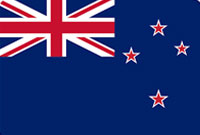
- Germany

- France
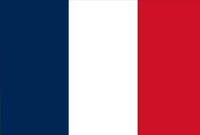
- Italy
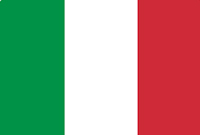
- Sweden
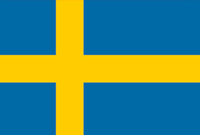
- Finland
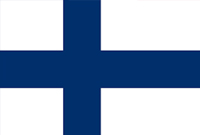
- Georgia
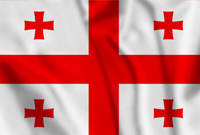
- Austria
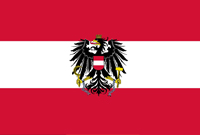
- Slovenia
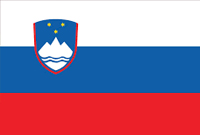
- Spain
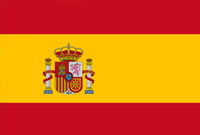
- Belgium
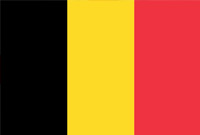
- Bulgaria
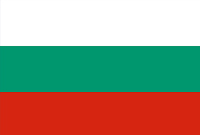
- Czech Republic
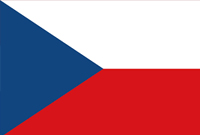
- Croatia
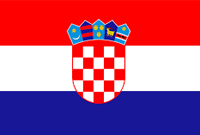
- Denmark
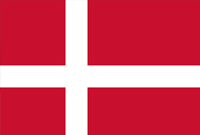
- Estonia

- Greece
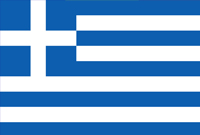
- Hungary
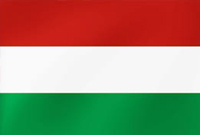
- Iceland
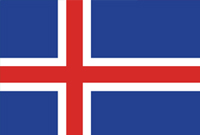
- Latvia
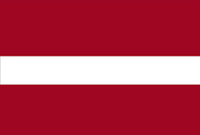
- Liechtenstein
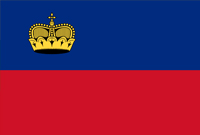
- Lithuania
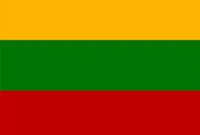
- Luxembourg
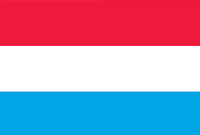
- Malta
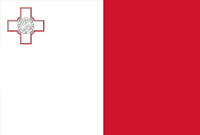
- Netherland
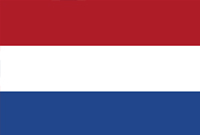
- Norway
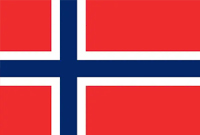
- Poland
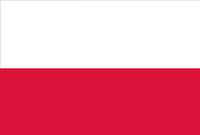
- Portugal

- Romania
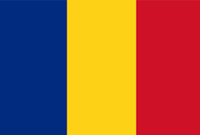
- Slovakia
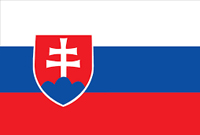
- Switzerland
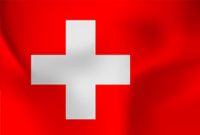
- Serbia
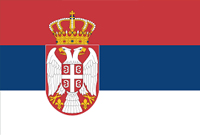
- Ireland
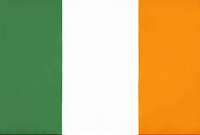
- Albania
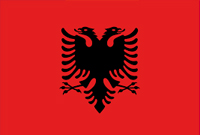
- Moldova
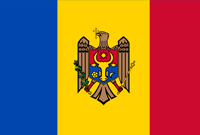
- Ukraine
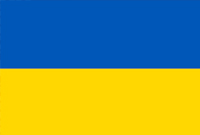
- Belarus
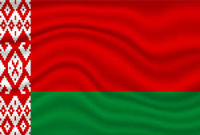
- Russia
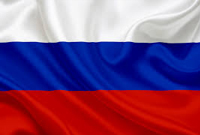
- Cyprus
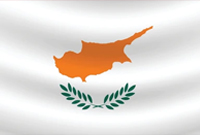
- Monaco
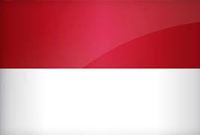
- Bosnia
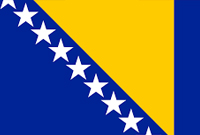
- Andorra
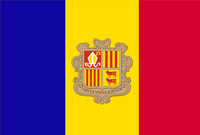
- Montenegro
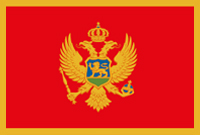
- More Contries

Why Choose Us?

Complete Assistant with Quality Service

20 Years of Experience

India's most certified Agency

Study for Free or With Affordable Tuition Fee
Do you have questions or want more information?

